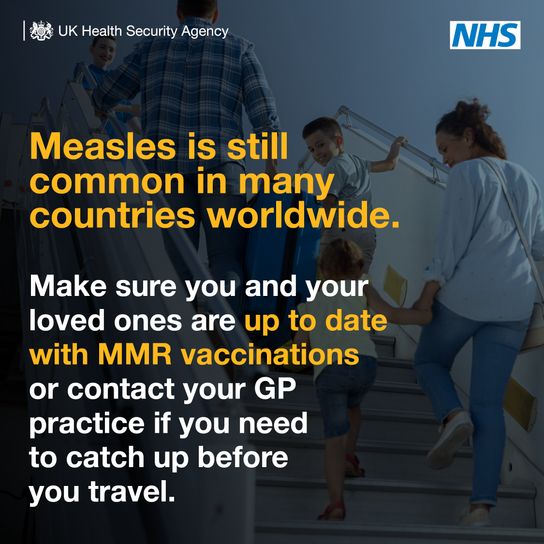And, after clean water, the World Health Organisation says vaccinations have the greatest positive impact on human health around the globe.
Fortunately, in the UK, we are offered free protection against serious and life-threatening infections via the NHS vaccination programme through every stage of our life.
Free protection
Shortly after a baby is born, parents are given information about their child’s first immunisations.
These initial jabs, which start from around 8 weeks old, protect against a number of infections that can cause pneumonia, meningitis and sepsis.
The vaccines offered to babies and toddlers also protect them from serious illness such as whooping cough.
As a child gets older, they are offered more appointments to get vaccinated, right up until they are teenagers. When they are little, children’s vaccinations tend to be done at GP surgeries, but teens often receive the Human Papilloma Virus (HPV) vaccine, the teenage booster(Td/IPV), offering protection from tetanus, diphtheria, and polio, and MenACWY vaccines, at school.
Given this, it’s important for parents and guardians to look out for, and return, any consent forms for vaccines that are given at school.

“Vaccines are free on the NHS and, whatever your age, it’s never too late to catch up”
The full childhood immunisation programme protects young people against many different illnesses and it’s best to have vaccines on time.
However, you can still catch up on most vaccines if you miss them.
“Vaccines are free on the NHS and, whatever your age, it’s never too late to catch up”, says Kent County Council’s (KCC) Deputy Director of Public Health, Dr Ellen Schwartz.
You can see the full immunisation schedule and if you are concerned that your child, or any family member, has skipped certain vaccines you can speak to your GP practice about catching up – particularly before travelling abroad this summer, or heading off to college or university in the Autumn.
You can also use your child’s Red Book to look back at which vaccines they have received and if there are any gaps in the record that need to completed.

Measles is still common in many countries so before travelling overseas make sure you and your loved ones are up to date with MMR
Before you travel
If you are set to travel overseas this summer, it is vital to ensure you and your family are up to date with your UK vaccination schedule, both for your own protection and for the benefit of the health of those around you.
Many countries have different diseases circulating and some of these could potentially be dangerous. It’s possible to pick up an illness that we don’t routinely see in the UK, and some can also have serious consequences for vulnerable individuals, including anyone with a weakened immune system.
Viruses such as measles are more common in some parts of Africa, Asia and the mainland Europe, so please check that you are up to date with your childhood vaccine schedule.
Always check your country of travel for recommended vaccinations, review the NHS Advice on Travel Vaccinations and keep a close eye on outbreaks in the country you are going to.
For advice on vaccinations and preventative medicines, you can contact your local travel health clinic,pharmacies offering travel health services or your GP surgery.
More information
As well as protecting us, vaccination also helps to build herd immunity and protect others who may not be able to get vaccinated or have a weak immune system. This includes patients who have had organ transplants, or who have blood cancer, and those undergoing chemotherapy treatment for cancer.
The NHS website has lots of information about the free vaccines on offer. By clicking on each vaccine you can see detailed information about it and catching up on missed doses. There’s also tips for parents to help your child’s vaccination appointment go smoothly.



